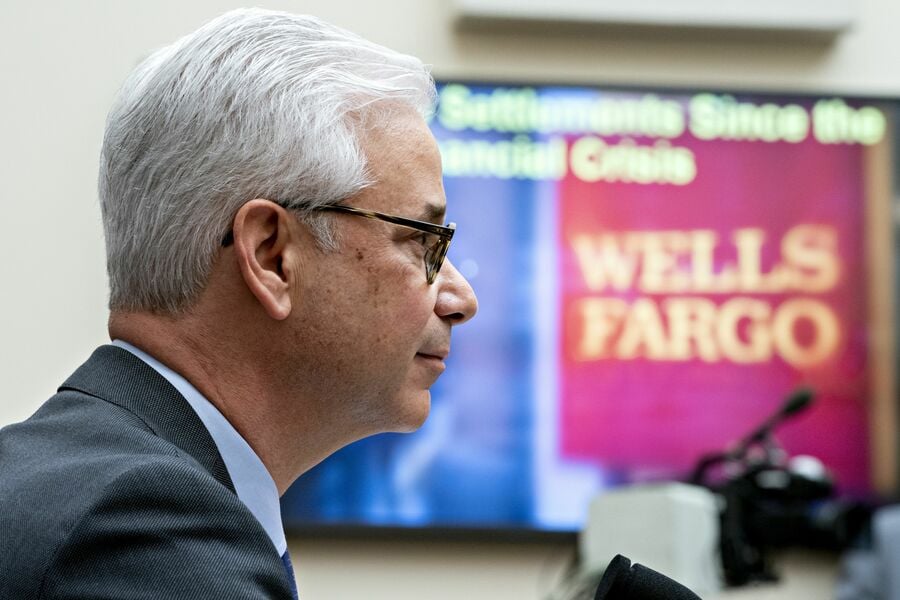

Wells Fargo & Co. remains committed to turning itself around following a series of scandals that have plagued the bank since the middle of the last decade, but it will take “several years of work” to satisfy U.S. regulators, Chief Executive Charlie Scharf said.
The San Francisco-based bank is “laser-focused on meeting our own expectations and those of our regulators,” Scharf said in prepared remarks for a hearing Wednesday before the House Committee on Financial Services. The CEO is set to testify during two days of congressional hearings alongside his counterparts from major lenders including JPMorgan Chase & Co., Bank of America Corp. and Citigroup Inc.
Wells Fargo has been dealing with a series of scandals and regulatory issues for years, and is operating under a growth cap imposed by the Federal Reserve. A year ago marked the expiration of a Consumer Financial Protection Bureau consent order issued in 2016 regarding the bank’s retail sales practices, and in December the Office of the Comptroller of the Currency terminated a 2015 consent order over add-on products Wells Fargo improperly sold to customers.
“Despite achieving these and other milestones, we know we still have much more work to do,” Scharf said. “We need to fully implement the many plans we have developed, many of which require several years of work, and also demonstrate their sustainability. We have multiple checkpoints along the way before we turn the completed work over to our regulators for their review. All of this takes time.”

Integrated Partners is adding a mother-son tandem to its network in Missouri as Kestra onboards a father-son advisor duo from UBS.

Futures indicate stocks will build on Tuesday's rally.

Cost of living still tops concerns about negative impacts on personal finances

Financial advisors remain vital allies even as DIY investing grows

A trade deal would mean significant cut in tariffs but 'it wont be zero'.
RIAs face rising regulatory pressure in 2025. Forward-looking firms are responding with embedded technology, not more paperwork.
As inheritances are set to reshape client portfolios and next-gen heirs demand digital-first experiences, firms are retooling their wealth tech stacks and succession models in real time.
